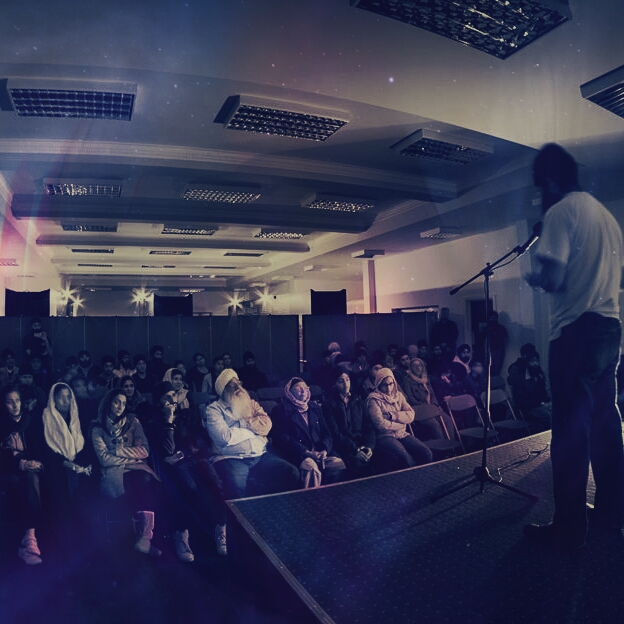It was announced over the weekend that Indian Prime Minister Narendra Modi will be making his first trip to the UK this November, but as news stories go, it went mostly unnoticed. Overshadowed by the Greek Referendum which has dominated headlines around the World, perhaps it was naive of me to expect some of the British press to give it column inches, seeing as it is no longer seen as a controversial decision by the establishment. But it is of course a major decision for Sikhs and other minorities who will again be questioning just how ‘at home’ they should feel in a nation that openly cavorts with 3rd World dictators.
Narendra Modi has been itching to visit the United Kingdom for some time and it appears that he will finally get his wish. Buoyed by the recent landslide victory of the Conservative party, his visit has been pushed for by MPs on both sides of the House such as Priti Patel and Keith Vaz, the latter once likening Modi to a rockstar in an interview with the Times of India. That such unashamed gushing came from an elected member of Parliament for a man whose name is synonymous with the atrocities committed in Gujarat in 2002, says more about the disconnect between British politicians and the people they represent, than the intellect of the aforementioned Vaz, but it begs the question as to why more is not being made about Britain finally accepting an official visit. That the announcement was made in the Indian press on a busy international news day says a great deal – perhaps the Modi camp is fearing he will be met with a similar welcome as that of his recent visits to North America.
Britain had frozen out the now-Indian PM’s travel to the UK in 2002 after Hindu terrorists ran rampage in the State of Gujarat, murdering more than a thousand Muslim citizens. Modi at the time was the Chief Minister of the State and questions were asked as to why more was not done by those in power to stem the violence perpetrated largely by members affiliated to his political party; some went further and even accused him and his political cohorts of encouraging the terrorists. That decision to freeze his travel was rescinded in 2012 when it became clear that Narendra Modi’s star was rising across India, and that a future BJP Government would be led by him as the premier. The British Government, as ever, keen to engage in political chess across the World saw the opportunity to reach out to Modi and the BJP, with of course one eye on those all-important trade deals between the two nations.
It is not that one expects a British Government to ignore the Prime Minister of one of the largest countries in the World – that is not what is being asked here. What is in question is the need for an official visit. It is of significance that the short trip will further legitimise Narendra Modi’s position in the sub-continent where his propagandists have already used previous trips abroad to great effect, but more importantly for Sikhs in the West will be that his presence causes further disenfranchisement between the halls of Whitehall and the average Sikh. An event at Price Waterhouse Coopers (PWC) in London tonight underlined just how far removed from political spheres Sikhs already are, as an event organised to consider the role of Sikhs in politics was only attended by three sitting MPS, two of whom left before any questions were asked. Minimal attendance during the summer is understandable, but it is the manner in which politicians are fully aware that the Sikh electorate is one that challenges little and will be quite happily satisfied by the most uninspired of addresses, as was witnessed this evening, which is troubling. Sikhs were once known for remonstrating with their own leaders when they thought that they had acted wrongly and stinging rebukes were commonplace during the Confederacy of the Misl leaders and in the Kingdom that followed under their successor Maharaja Ranjit Singh; a far cry from today, sangats satiated as the Sikh greeting is used by politicians who don’t believe in what it means.
Modi’s arrival on these shores will certainly not be greeted happily by Sikh citizens, but it is a potential trip to a Gurdwara that will draw our ire most of all. In a recent visit to the west coast of Canada, his presence at a Gurdwara resulted in the shutting down of the building to the public – a despicable abuse of what the institution stands for – with protestors outside kept at bay by the Police. Those who controlled the affairs of the Gurdwara in question had colluded with both Modi’s camp and the Canadian authorities, to invite him for a white-wash of a service honouring his visit. Such people are not confined to the territories of British Columbia so I am sure similarly misguided Sikhs will have welcomed the weekend’s news and will be hand-licking the stamps on an invitation to the Indian Prime Minister in due course; I bear no grudge to these individuals, they mistakenly believe that by currying favour with the powers that be, their voices will find the ears of influence and some benefit, personal or otherwise, will follow. But if this does ensue here in the UK, the corridors of Whitehall can expect a quiet Sikh electorate no more; unlike North America, Britain’s involvement in the invasion of the Darbar Sahib in Amritsar in 1984 has come to the fore in recent times, and coupled with numerous insults such as the installation of a Mohandas Gandhi statue outside Parliament, it will only serve to enhance our sense of ostracisation. A Modi 3-day visit to the UK might not have been newsworthy to the editors of the British press a few days ago, but come November I have a feeling it will be.




